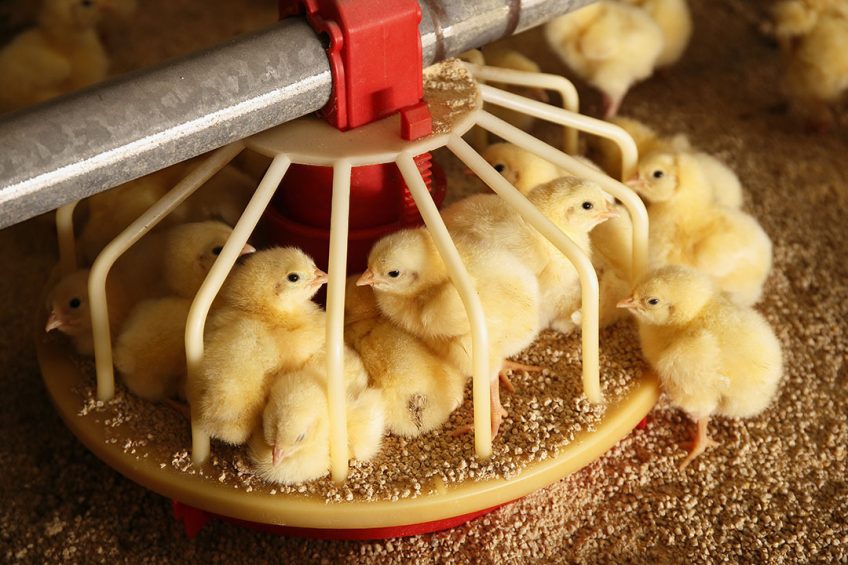Bird growth boosted through nano minerals in poultry feed

Researchers are claiming that nano minerals in poultry feed can improve broiler growth as well as boosting feed consumption and digestibility.
The team at Nottingham Trent University, UK, used a novel method of producing nano minerals coated with amino acid to investigate the impact of feeding nano zinc to broiler chickens.
The researchers discovered that the method clearly improved bird weight gain and increased the feed intake of broilers compared to those given an inorganic zinc form. Digestibility was also improved, along with some positive impact on tibia strength – important for the modern broiler. Due to their small size, supplying the minerals in nano form increases their bioavailability, meaning they are more effectively delivered to the body. And coating them with amino acid further supports their uptake.
Zinc has such a positive effect on poultry health and growth that it is great to find a low-cost way of making it highly digestible.”
Preventing the absorption of zinc
Many plant and animal sourced poultry feeds contain zinc, but they also commonly contain substantial quantities of phytate, which binds strongly to zinc preventing its absorption in the gastrointestinal tract. This lowers the bioavailability of zinc in these diets to below the requirements for healthy growing poultry. Zinc deficiency in poultry has been shown to cause slow growth, shortened and thickened legs with an enlarged hook and frizzled feathers.
Emily Burton, Professor of Sustainable Food Production at Nottingham Trent University, said: “Zinc has such a positive effect on poultry health and growth that it is great to find a low-cost way of making it highly digestible. “This means we can now use small amount of zinc very efficiently, so the risk of polluting the environment with unused zinc in poultry manure is lowered.”
 Pathogens and Prevention
Pathogens and Prevention
Diseases are always just a stone’s throw away from any livestock herd/flock and producing healthy and safe animal products is key for a successful business. In this special we focus on how to keep diseases at bay via biosecurity measures, management and nutritional interventions.
Using nanotechnology to increase animal welfare
And lead scientist on the study, Dr Gareth Cave, added: “Nanotechnology is becoming widely adapted in a variety of different fields from medical imaging to plant food. One of our research aims at NTU is an interdisciplinary approach that focuses on addressing global food security, whether that is improving food production or increasing the national value of staple crops like potatoes. “In this study, we demonstrate how the improved bioavailability that nanotechnology offers can be used in the farmed animal feed sector to increase animal welfare and production, while also reducing the potential downstream environmental impact of farm waste.”













